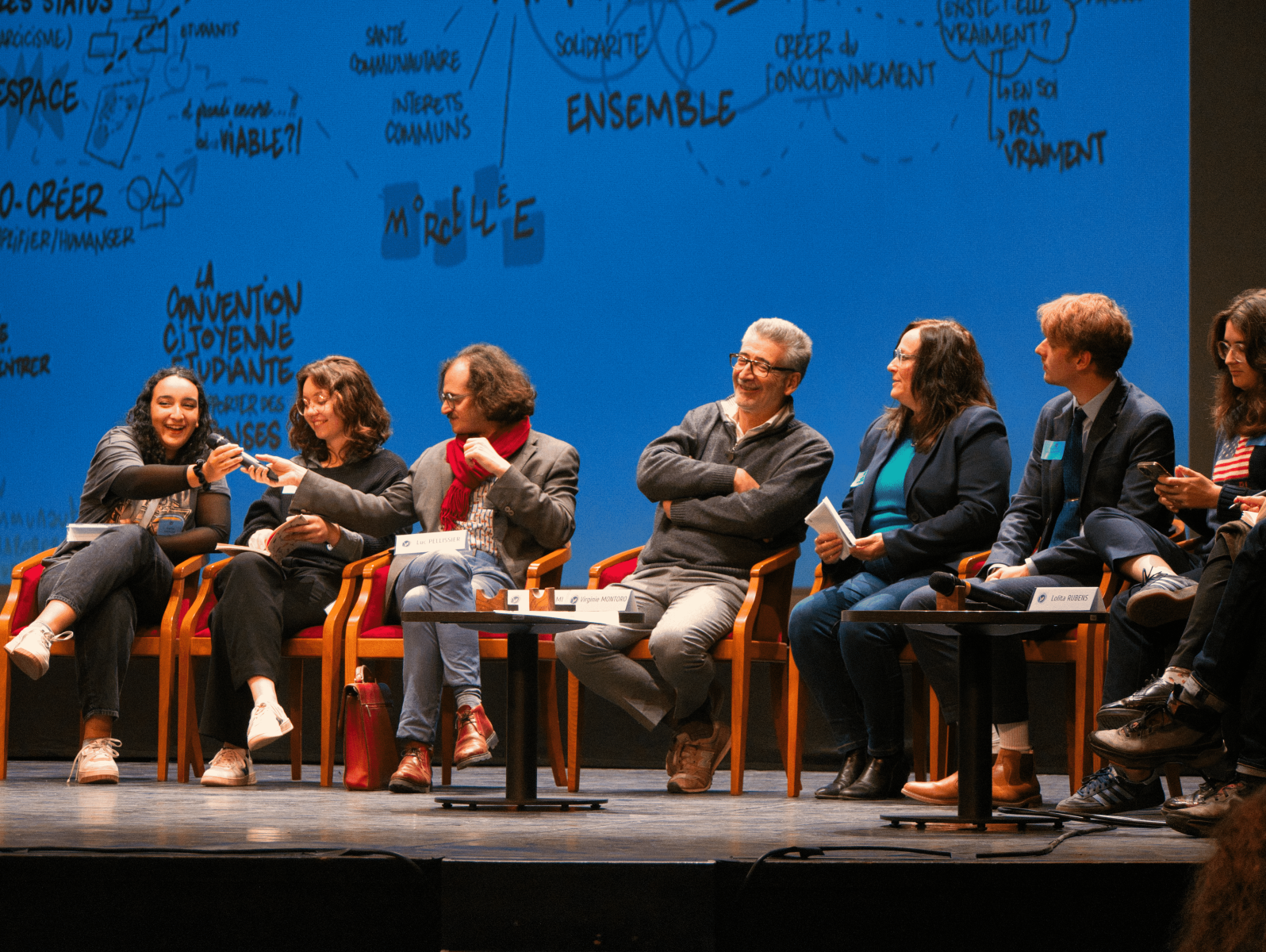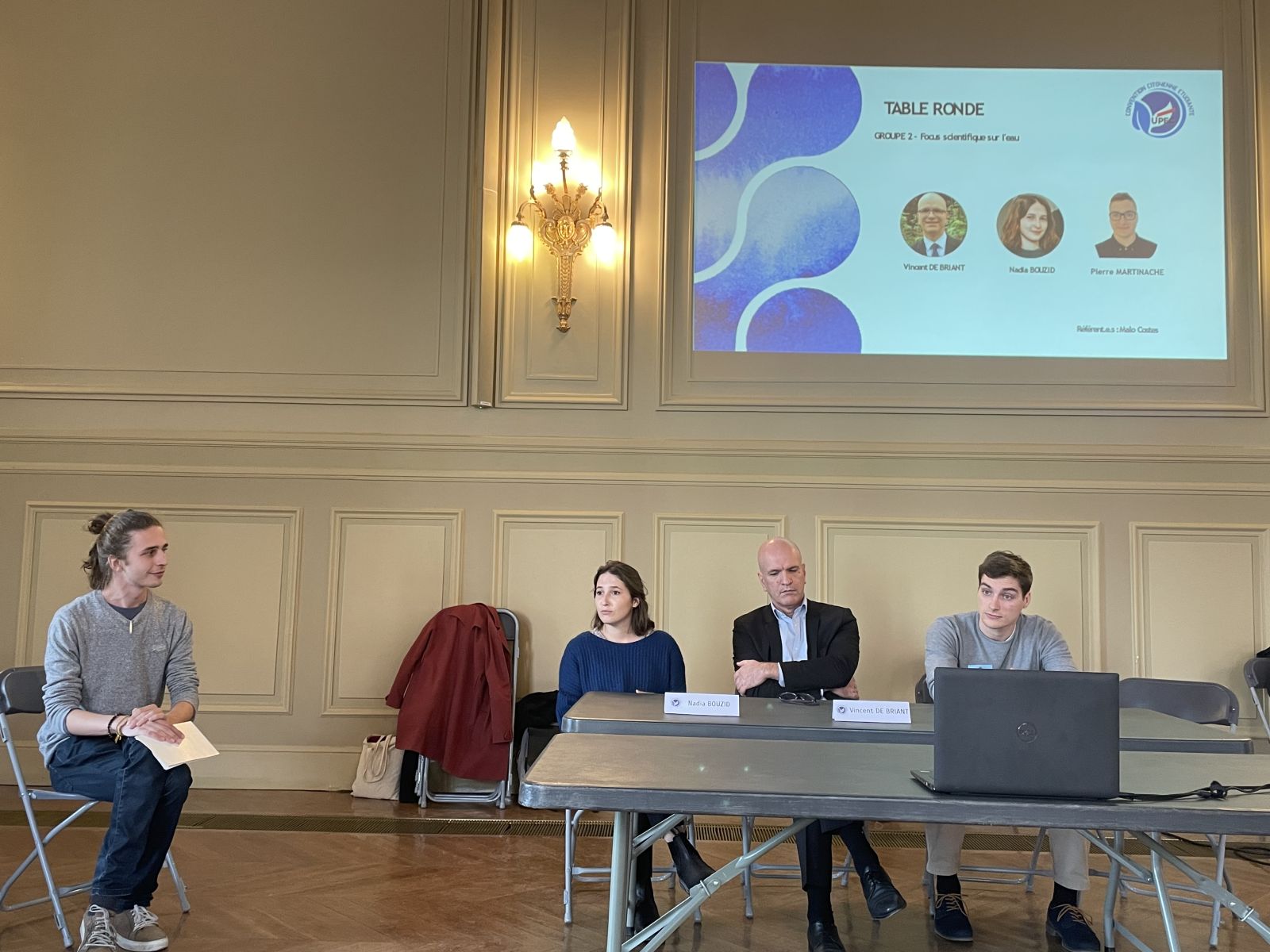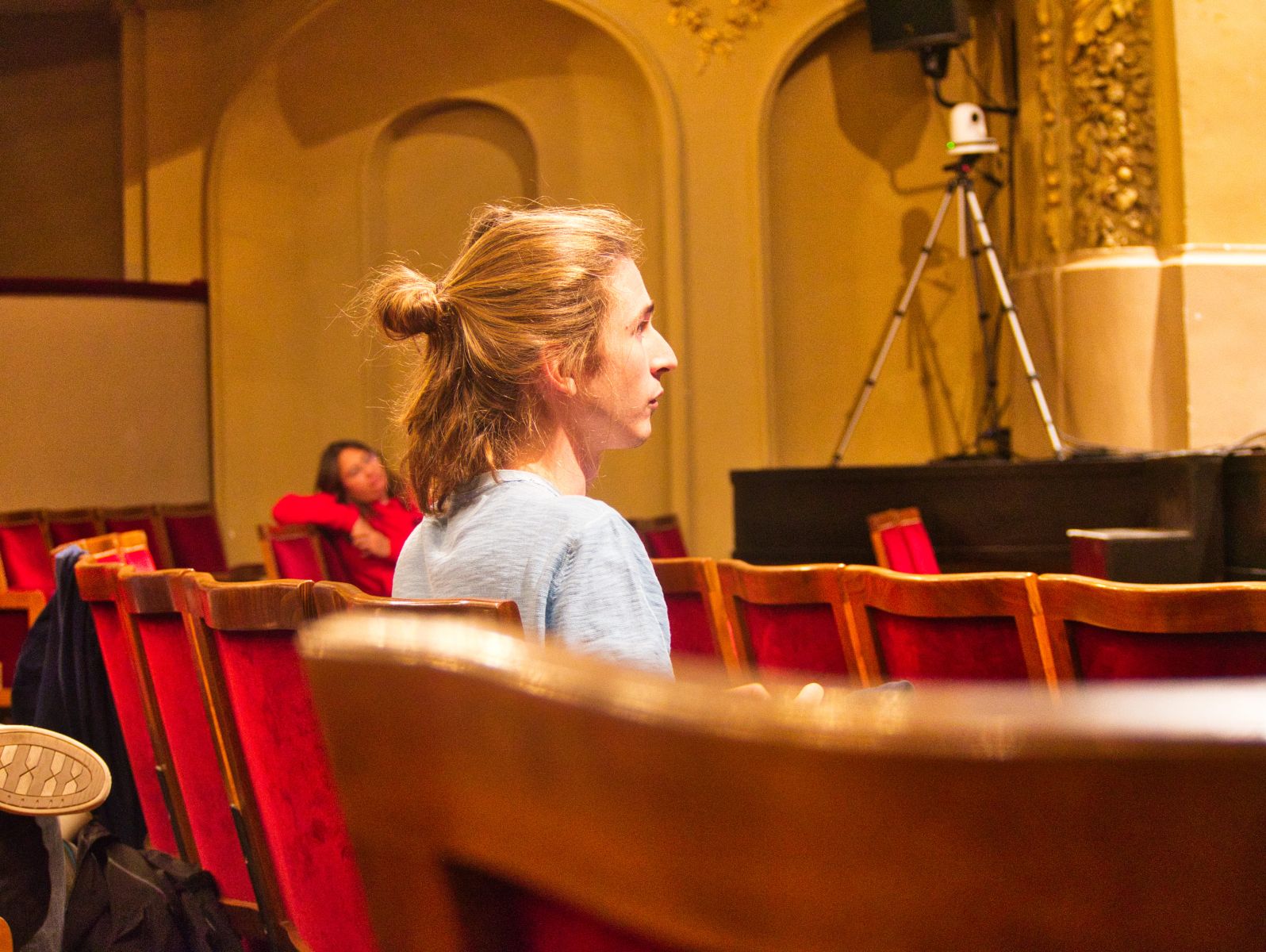- EUR-LIVE
- eur-live@u-pec.fr
Published on 20 nov. 2023
On the occasion of the third edition of the Citizen Student Convention, 'The University of the Future, the Future in Common(s)' Malo COSTES, laureate of the EUR LIVE doctoral scholarship (2023-2026), shares his experience as moderator of the round table ‘Scientific Focus on Water’. This opportunity is part of his thesis, intitled 'Exposure to Air Pollution and Vulnerability of Populations in Different Urban Projections' under supervision of Isabelle Coll, co-lead of the EUR LIVE pilar, Health & Environment.
At the end of CCE 2022, the students chose to discuss on 2023 on theme of water, a major issue of our time with multiple impacts whether local, regional or global. This scientific axis of this round table addressed the cycle of water, its impact on human activities, inequalities in access (nearly a third of the world's population is affected), pollution linked to industrial activities, intensive agriculture and plastic waste, threatening aquatic ecosystems and biodiversity. Additionally, climate change is exacerbating water-related problems, with extreme weather events endangering food security, water supplies and social stability.

This round table took place during the launch of CCE 2023 on October 17 and brought together three speakers working on the water issue. To start the discussion, Malo asked the speakers to introduce themselves and share their motivations for working on this subject.
Speakers:

The speakers addressed several aspects of water management: regarding the pollution of aquatic environments, Nadia Bouzid emphasized the importance of raising awareness to encourage individual consciousness leading to collective regulations. She also highlighted the difficulty of uniting individuals around common interests, citing, for example, the complexity of implementing a single water tariff across Europe due to uneven exposure to risks based on geographical disparities.
Vincent De Briant mentioned the case of Montpellier as an example of water price management to be studied. The idea of reducing costs by using greywater was raised to reduce the price of the bill. Finally, Pierre Martinache underlined the importance of quality water treatment, emphasizing the search for more affordable solutions, particularly for developing countries faced with the high costs of wastewater treatment plants and complex infrastructure.
Overall, the initial discussion highlighted the importance of individual responsibility, local water pricing, solidarity, and effective infrastructure for sustainable water management.
Students participating in the CCE were active in the discussion, asking questions to the speakers and contributing to the conversation. Some asked the possibility of sanctioning states for their negligence in preserving water, eliciting divergent opinions among the speakers. Another aspect raised-out, was how to encourage awareness, gain support from associations, and leverage social networks. Pierre Martinache recalled previous CCE discussions and emphasized that those already sensitized are engaged, but it is more challenging to raise awareness among those who are not. This discussion also led some students to question the prioritization of themes, especially regarding student precariousness compared to global issues.

It was also emphasized that interdisciplinary work is essential to develop viable solutions at the university level, but it is necessary to agree on common definitions, such as pollution, before addressing these subjects. Other themes discussed included sobriety, CO2 capture, source repair, the development of technologies to improve the environment, and questions about aid to developing countries, requiring common definitions for consistent assessments considering various ecological and social values. Finally, the importance of considering a wide range of actors, strengths, weaknesses, and the workforce was highlighted as essential to addressing challenges related to water management.
In conclusion, the opportunity to moderate this round table as part of the Citizen Student Convention was an enriching and formative experience. Malo Costes tell us why:
We thank our laureate for his active participation in this round table!
Update 20 nov. 2023